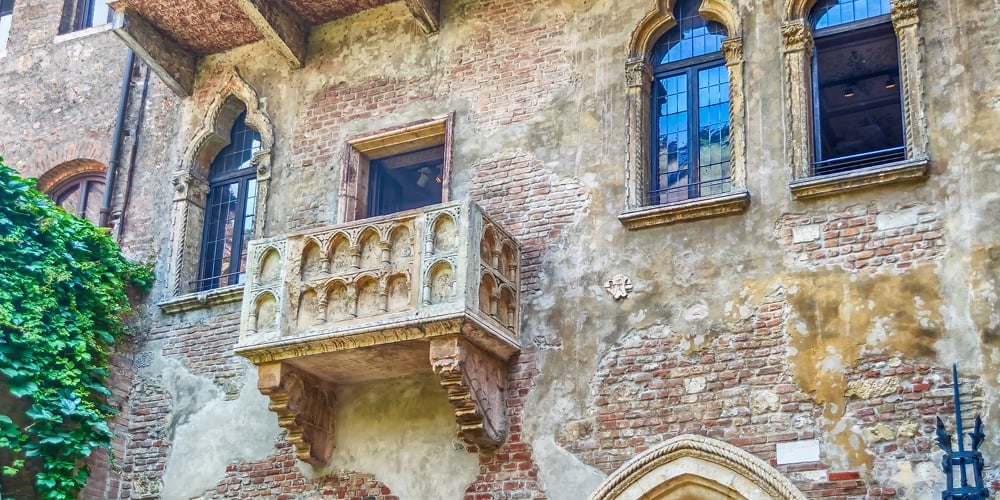February has long been a month focused on love. It’s the time of year where we remember what made us fall in love with the special people in our lives (even if they were driving us crazy last month). We look for special ways to celebrate them, reminders to each of us how good it feels to know you are loved.
The credit union industry reminds me a lot of the month of February. An entire financial system built solely based on our love for our communities and how we might support them in ways they weren’t before. Our core philosophy of “people helping people” was born from and has been sustained by our love.
We all know Romeo and Juliet as a classic love story, the kind of “head over heels” love we often dream about and celebrate this month. Their passion was undeniable, the potential limitless, and yet, it all ended in disaster. There’s a lesson here for our industry; in turbulent times during which our communities might not feel united, might be focused on issues that call out the ways in which they are different from one another, might be focused more on the things we don’t agree on than the things we do, our industry can choose to see opportunity. Opportunity to foster forgiveness, to encourage support, to show ways in which our communities have worked together to overcome odds before, to remind them we love them all, and that we’re here for them. To remind them that much like the Montagues and Capulets we all stand to lose so much when we focus more on hate than love.
The below story was written by Jonathan Antonini, former English Professor at Sam Houston University and is a heartfelt perspective on how the world we live in today mirrors many aspects of this tragedy. Take a moment to read it, you’ll be glad you did.*
The Real Tragedy of Romeo and Juliet
The story of Romeo and Juliet has an enduring and timeless lesson to teach, but it is a lesson often missed and not taught in academia. Too often, the focus of the story is on the “star-crossed” lovers, who are unable to live happily together. Fate or circumstance is blamed for the tragic end of Romeo and Juliet when choice is the true culprit. The sole tragedy of the story is laid bare at the feet of their parents – the Montagues and the Capulets – because they choose bitterness, unforgiveness, and hatred.
The answer to the question – “Why can’t Romeo and Juliet be together?” – is discovered and explained in those simple but devastating emotions. Shakespeare, in his genius, does not choose race as a divide between these families. He does not choose religion or class. By all accounts, both families are of the same religion, race, color, creed, affluence, and wealth as each other. This is why Shakespeare is timeless. He transcends these individual obstacles to tackle the real issue – basic human emotion, The Human Condition.
Shakespeare does not write for a selective audience, but for the benefit of the entire human race. He gives no reason for the rivalry and bitterness between the Capulets and Montagues, simply that their feud is ancient, and it is feasible that the two families do not even know the origins of the feud. But because hatred and unforgiveness are cultivated for decades, the parents cannot see past their own bitterness to find that their children have fallen in love. This is the true tragedy of the story. When people’s unwillingness to “see the other side” blinds them to understanding each other, they lose sight of their common and shared humanity. Disagreements are common and a normal part of human life, but what Shakespeare reveals is what happens to individuals who allow the root of bitterness and hate to flourish in their lives.
This story could have so easily been a fairy tale, a “happily ever after” if the parents were willing to lay down their arms in realization that their children had bridged the gap of the ancient feud with their love. Peace could have been restored, joy exemplified, relationships healed, and the entire city of Verona brought to rejoice if the two families could have simply chosen to forgive one another. One of the greatest tragedies in all of literary history could have so easily been one of the happiest love stories of all time. However, Shakespeare, knowing the obstinacy of the human race, reveals a cautionary tale in that if one lets bitterness, unforgiveness, and hatred to fester in their heart, they have the potential to rob people of even their own children, a parent’s most precious possession.
Therefore, forgiveness is of the utmost importance – it is not simply a moral edict or an ethical declaration. It is the very thing that can save humanity from experiencing a similar loss and tragedy. Many people balk at the idea of forgiving a person or institution for the pain that has been caused. They reject forgiveness on the basis that it is only a moral issue or something you should do to be “good.” What many people fail to realize is that forgiveness protects humanity from loss and from the devastating consequences of terrible choices and nursed bitterness. Shakespeare reveals the true value of this basic but ever most necessary choice – yes. Forgiveness is a choice. It is not a feeling, rather it is what people do despite their feelings. It is possible, and it would have saved the Montagues and the Capulets. It would have allowed Romeo and Juliet to marry, and it would have united the entire city of Verona. Instead, we have one of the greatest tragedies of all time because of hatred, bitterness, and unforgiveness. I can hear Shakespeare almost pleading with his audience, us, to not follow in the footsteps of the Montagues and Capulets – do not share in their tragedy. Rather, hear his words, listen to this most famous of cautionary tales, and let forgiveness lead to life rather than death.
*Introduction by Amanda Reed, Marketing and Membership Director at NACUSO.







